Google’s March 2024 Core Update has shaken up the digital landscape, altering how websites are ranked and presented in search results. This update is part of Google’s ongoing mission to deliver high-quality, relevant, and trustworthy content to users. Over the years, Google has continuously refined its algorithms to improve the user experience, combat spam, and reward websites that offer genuine value. These updates are crucial for ensuring that the digital ecosystem remains fair, competitive, and beneficial for both users and content creators. In this article, we’ll dive deep into the five key changes brought about by this update and explore how they’ll affect website owners, SEO professionals, and users alike.
1. Reduction of Unhelpful and Unoriginal Content
Google has significantly improved its ability to identify and demote content that fails to provide value to users. Websites that rely on repurposed or thin content are now facing tougher consequences. For example, a health blog producing original, research-based articles saw a notable boost in visibility, while a similar site that simply republished content from other sources experienced a sharp drop in rankings. Similarly, e-commerce websites that sell identical products as their competitors but differentiate themselves with detailed, unique product descriptions have also seen improvements in their rankings.
This update targets several types of low-value content:
- Copied content: Websites that merely reproduce information without adding their own insights or value are more likely to be penalized.
- Thin content: Pages that lack depth or fail to offer meaningful information are being pushed down in search results.
- AI-generated content without human oversight: While AI tools can aid content creation, relying solely on AI without thoughtful human review and enhancement may cause the content to be deemed less valuable.
Practical Tip: Use tools like plagiarism checkers or AI detection software to ensure your content is original. Regularly audit your site for duplicate content, and update old articles with fresh insights or new data to maintain relevance and value.
What This Means for You:
- Focus on creating original, in-depth content that provides unique insights or information.
- If you’re summarizing information from other sources, add your own analysis, examples, or context to make it more valuable.
- Use AI tools responsibly, ensuring that any AI-generated content is thoroughly reviewed and enhanced by human experts.

Real-World Example:
A cooking blog that posted original recipes with detailed instructions, personal anecdotes, and tips for ingredient substitutions saw a 40% increase in organic traffic after the update. Conversely, a site that mainly aggregated recipes from other sources without adding unique value experienced a 50% drop in visibility.
2. New Spam Policies
Google has introduced more sophisticated spam detection algorithms and policies. These new measures target:
- Cloaking: Showing different content to search engines and users.
- Hidden text and links: Using techniques to hide content from users but not search engines.
- Doorway pages: Creating multiple pages to funnel users to one destination.
- Scraping content: Automatically copying content from other sites without permission or adding value.
What This Means for You:
- Audit your content: Regularly check for cloaking, hidden text, or any outdated SEO tactics that may now lead to penalties.
- Use clear calls-to-action: Ensure that all the content you show to search engines is visible to your users as well. This transparency will build trust and improve rankings.
- Check backlinks: Make sure you aren’t associated with spammy websites. Disavow any toxic links that could harm your ranking.
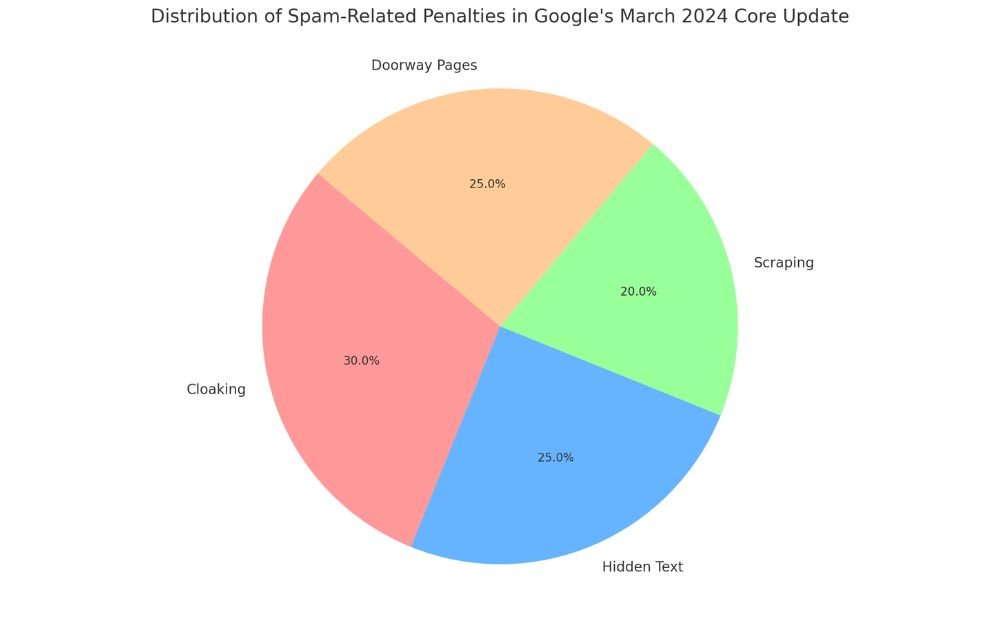
Real-World Example:
An e-commerce site that had been using hidden text to stuff keywords saw its rankings plummet after the update. They had to completely overhaul their SEO strategy, focusing instead on high-quality product descriptions and user-generated content, such as reviews. As a result, their rankings gradually recovered, and their site started gaining organic traffic again.
3. Site Reputation Abuse
Google has become more adept at identifying sites that abuse their reputation or the reputation of others. This includes:
- Misuse of brand names: Using well-known brand names inappropriately to boost visibility.
- False claims of partnerships or affiliations: Suggesting non-existent relationships with reputable entities.
- Misleading use of credentials or awards: Overstating or fabricating qualifications or recognitions.
What This Means for You:
- Be honest and transparent about your credentials, partnerships, and affiliations.
- If you’re mentioning other brands or entities, ensure you’re doing so in a way that doesn’t mislead users about your relationship with them.
- Focus on building your own genuine reputation through quality content and positive user experiences.
Types of Site Reputation Abuse and Corresponding Penalties
| Reputation Abuse Type | Factual Penalty |
|---|---|
| Misuse of Brand Names | Manual actions leading to delisting or lower rankings |
| False Claims of Partnerships | Portions of site delisted from search results |
| Misleading Credentials | Manual review and deindexing for misleading content |
This table will now b
Real-World Example:
A health supplement company that had been using misleading claims about celebrity endorsements and scientific studies saw a significant drop in their search visibility. They had to rebrand and refocus their marketing on honest testimonials and properly conducted studies, which led to a slow but steady recovery in their rankings.
4. Expired Domain Abuse
Google has cracked down on the practice of using expired domains to manipulate search rankings. This includes:
- Purchasing expired domains with existing backlinks: Buying old domains to benefit from their established link profiles.
- Redirecting expired domains: Using 301 redirects from expired domains to boost a site’s authority artificially. (A 301 redirect is a permanent redirect from one URL to another. When used with expired domains, it can manipulate rankings unfairly.)
- Creating PBN (Private Blog Network) with expired domains: Using a network of expired domains to create artificial backlinks. (A PBN is a group of websites designed to build backlinks and artificially boost search rankings. Google targets these networks because they manipulate ranking signals.)
What This Means for You:
- Avoid trying to shortcut your way to higher rankings by purchasing expired domains.
- Focus on earning high-quality backlinks through natural means, such as creating share-worthy content.
- If you do acquire an expired domain, ensure you’re using it to create a genuine, valuable website rather than just for its link profile.
Real-World Example:
A digital marketing agency that had been using a network of expired domains to boost client rankings saw a dramatic decrease in effectiveness after the update. They had to shift their strategy to focus on creating high-quality content and earning legitimate backlinks, which led to more stable and sustainable results for their clients over time.
5. Emphasis on Content Quality and Relevance
Google has further refined its ability to assess content quality and relevance. This includes:
- User intent matching: Better understanding and serving the underlying need behind a search query.
- Depth and comprehensiveness: Favoring content that thoroughly covers a topic.
- Expertise and authoritativeness: Giving preference to content created by demonstrable experts in the field.
- Freshness and updates: Valuing content that is regularly updated and current.
What This Means for You:
- Create content that truly answers user questions and solves their problems.
- Demonstrate your expertise through detailed, well-researched content.
- Regularly update your existing content to keep it fresh and relevant.
- Consider implementing author bios or other ways to showcase the expertise behind your content.
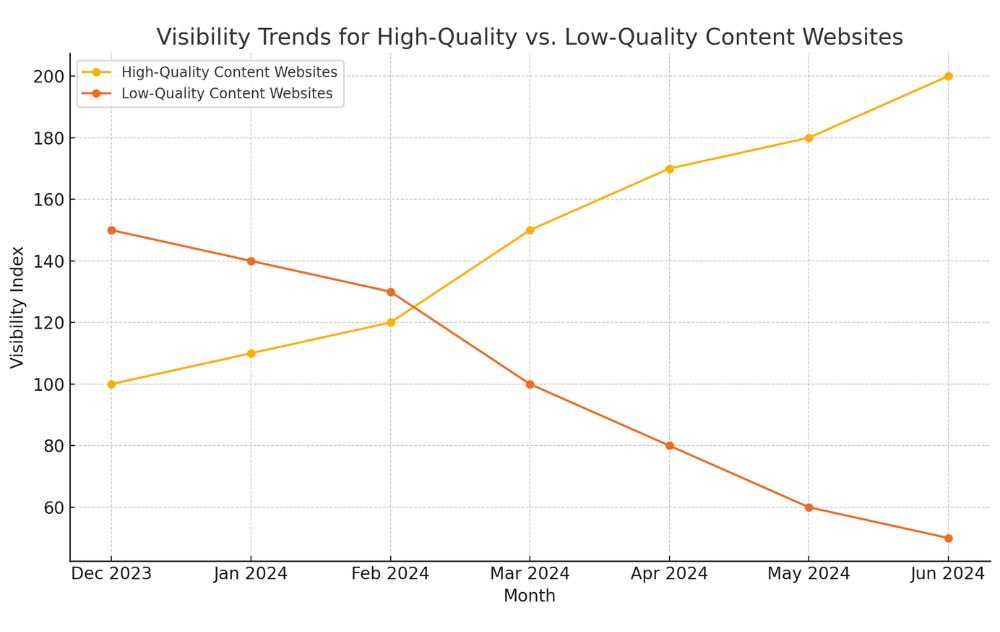
Real-World Example:
A medical information website saw a 60% increase in organic traffic after the update. They had recently overhauled their content creation process, ensuring all articles were written or reviewed by verified medical professionals, included recent research, and were updated regularly. In contrast, a competing site with outdated information and no clear expert oversight experienced a significant drop in rankings.
Conclusion
Google’s March 2024 Core Update is a game-changer for website owners, SEO professionals, and content creators. These updates reinforce the importance of high-quality, original content, ethical SEO practices, and user trust. As Google continues to prioritize user experience, it’s essential to stay ahead by regularly auditing your content and ensuring your strategies are transparent and user-focused.
Looking forward, it’s important to remember that Google’s updates will continue to evolve as they adapt to new technologies and user behaviors. By keeping your content fresh, authoritative, and relevant, you’ll not only navigate this update successfully but also position your site to thrive in future algorithm changes.
FAQs
The March 2024 Core Update focuses on improving the quality of search results by prioritizing genuinely useful content. It penalizes websites with unhelpful or spammy content, ensuring that users receive more relevant and valuable information in their searches.
Websites with low-quality content, such as republished or thin content, will see a drop in rankings. Google’s algorithm is better equipped to detect unoriginal or non-informative content, leading to lower visibility for such sites.
Google has introduced manual actions, such as delisting or deranking portions of websites, for site reputation abuses like misuse of brand names, false partnerships, or misleading credentials. These penalties target websites attempting to manipulate search rankings by exploiting their reputation(Search Engine Land) (semKaizen).
AI-generated content is not automatically penalized, but Google focuses on content quality and user relevance. Content that is primarily created using AI without human oversight, and is unoriginal or lacks value, may be penalized under the updated spam policies. (LeadFlask).
The update targets practices like cloaking, doorway pages, hidden text, scraping, and abuse of expired domains. These practices are considered manipulative and result in penalties like lower rankings or removal from search results(StrategiQ)
To avoid penalties, focus on creating original, high-quality content that genuinely provides value to your audience. Regularly audit your website for outdated SEO practices, review backlinks for potential spam associations, and ensure transparency in your content creation process.
If your website experiences a drop in rankings, review Google’s content guidelines and spam policies. Focus on improving content quality, ensuring it meets the needs of users, and removing any low-value or spammy content. Manual actions can be addressed by following Google’s Search Console notifications for recovery.
Stay Ahead of Google’s Updates: Improve Your Website’s Content Today
As Google’s algorithms continue to evolve, ensuring your website delivers high-quality, valuable content is essential for maintaining strong rankings. Audit your site regularly, focus on creating user-first content, and stay compliant with Google’s updated spam and reputation policies.
Need help navigating the latest SEO challenges? Our team of SEO experts can guide you through optimizing your website for long-term success in the digital landscape.
Contact us today to get a personalized content strategy and keep your website ranking high, no matter what Google’s next update brings.


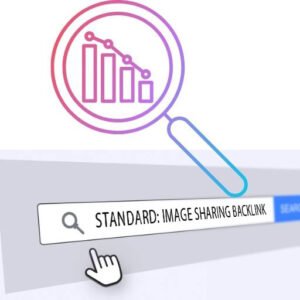
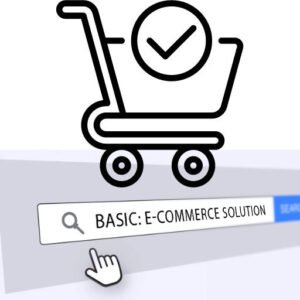


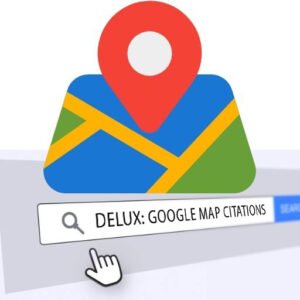


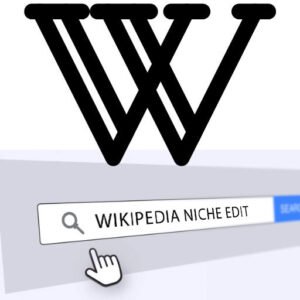
0 Comments